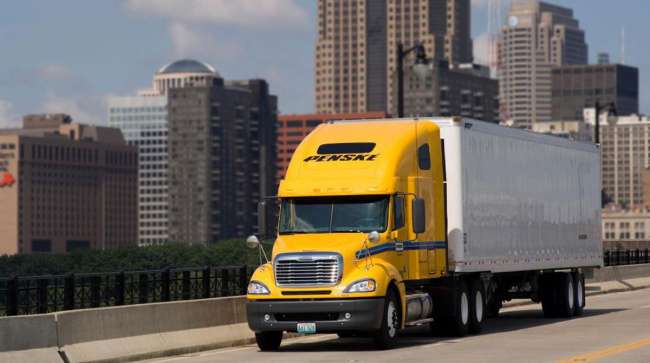Features Editor
Experts Say Fleets Should Prepare for New Lease Accounting Rules

Fleets that lease their trucks should start preparing now for new lease accounting rules that begin taking effect for public companies at the end of next year, accounting professionals and industry experts said.
With the new accounting standards, the biggest change is that operating leases will now be recorded on the balance sheet with capital leases, said Jason Miller, CPA and a partner with Katz, Sapper & Miller, an Indianapolis-based accounting firm. “All long-term leases will be presented on the balance sheet.”
RELATED: Fleets weigh benefits of buying versus leasing
A capital lease is a lease in which the lessor only finances the leased asset, and all other rights of ownership transfer to the lessee.
An operating lease is the rental of an asset from a lessor but not under terms that would classify it as a capital lease. The operating lease allows a business to keep from recording the asset on its balance sheet. This type of arrangement is known as off-balance sheet financing, per the Accounting Tools website.
The new rules will apply to all types of businesses for anything that is leased. “It could be a copier,” Miller said.
Currently, in the trucking industry, with a capital lease, the leased tractor and its accompanying lease liability are on a company’s balance sheet. An operating lease for a tractor does not show the equipment on the balance sheet, and therefore the truck does not show as a liability, Miller said. A company’s obligations for operating leases are reported only as a disclosure in notes to financial statements, said Jason Butler, audit practice leader at accounting firm Grant Thornton.
Fleets that lease their trucks and trailers should be planning for the changes now, because most lease agreements stretch three to five years, and could be longer, Miller said.
For public companies, the effective date for the new accounting standard is fiscal years beginning after Dec. 15, 2018. For private companies, it’s fiscal years beginning after Dec. 15, 2019, Miller said. “The biggest thing is understanding how it’s going to impact your financial statements and making sure the users of your financial statements understand that impact,” Miller said.
The Financial Accounting Standards Board issued this update “to provide users of financial statements more clarity concerning a company’s rights and obligations arising from leases and help users understand the amount, timing and uncertainty of cash flows arising from leases,” said Butler, who chairs the accounting principles study group for American Trucking Associations’ National Accounting & Finance Council.
Butler added that there won’t be much change for capital leases. They will now be referred to as finance leases, he said.
Matthew Brooklier, director of equity research at The Buckingham Research Group, said that based on some of the industry numbers he’s seen, about 25% of total Class 8 volume, or deliveries in a given year, are leased versus purchased outright.
For the most part, the FASB changes will turn most financing – whether leases or loans – into capitalized transactions, said Mark Lempko, a senior vice president for Commercial Credit Group Inc., an independent finance company with about 40% of its portfolio consisting of Class 8 and vocational trucks, as well as trailers and related transportation equipment. “This means it will be on the balance sheet and accounted for as a loan,” Lempko said.
For Jim Lager, senior vice president of sales for Penske Truck Leasing, the accounting changes do not affect the benefits he sees for fleets that choose full-service leases.
“Our value [proposition] pretty much stays the same,” Lager said. “Our customers will look to us for the same reasons they always have — because we take all of these other things off of their plate so they can focus on their business.”
Chris Sample, area operations manager for PacLease, also said “all of the advantages of leasing remain.” With off-balance sheet recording, “fewer dollars are recorded since only the present value of the lease payments are listed. If the truck were purchased, the full value of the vehicle would be recorded. So, our customers still will receive cash flow savings and flexibility in structuring of their lease payments,” he said.
Private fleets and for-hire carriers are now taking a closer look at how the buy or lease decision can impact their company’s balance sheet, “and how certain equipment lease structures impact their overall financial performance,” added Brian Holland, chief financial officer and president of Fleet Advantage, an asset management and financial services consulting firm.



